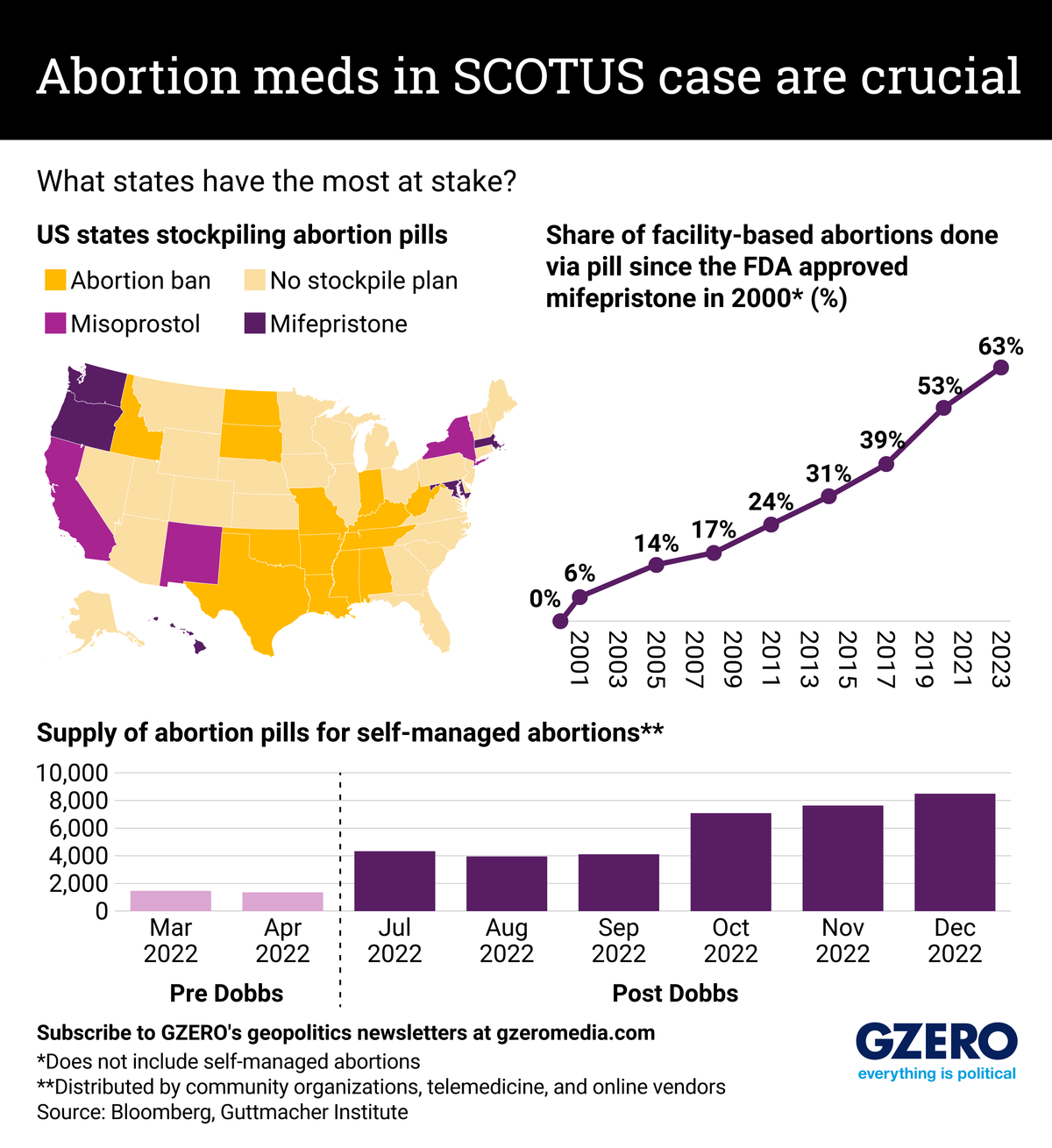Fresh out of Barnard College with a degree in political science, Riley is a writer and reporter for GZERO. When she isn’t writing about global politics, you can find her making GZERO’s crossword puzzles, conducting research on American politics, or persisting in her lifelong quest to learn French. Riley spends her time outside of work grilling, dancing, and wearing many hats (both literally and figuratively).
The US Supreme Court heard arguments on Tuesday on whether access to mifepristone, an oral drug used to terminate a pregnancy, should be restricted. The drug works by blocking progesterone, a hormone that’s necessary for a pregnancy to continue. The case centers on whether changes the FDA made in 2016 and 2021, which broadened access to the drug, should be rolled back.
Since SCOTUS overturned Roe v Wade, which saw many states ban or impose more restrictions on abortion access, a rapidly expanding online and community-based network have been sending the pills through the mail into states with strict bans. Nearly 28,000 additional doses of pills intended for “self-managed” abortions were provided in the six months after the fall of Roe v. Wade — more than quadrupling the average number of abortion pills provided that way per month before the decision and suggesting that many women have turned to medication abortion to circumvent state bans.






